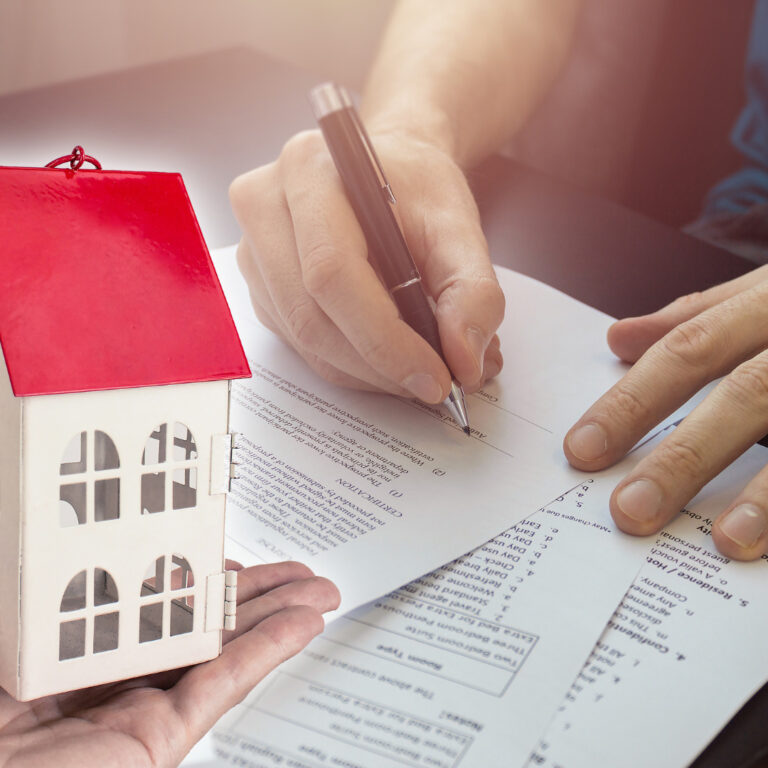Hey there, future homeowner! So, you’re about to take that exciting step of purchasing your dream home, and you know you need to get homeowners insurance to protect it. But you might be wondering, “What on earth do I ask the insurance folks to make sure I’m getting the best coverage?” Well, worry not! We’ve got your back with this handy guide. These eight must-ask questions will help you navigate the world of homeowners insurance and ensure you’re getting the protection you need to keep your home and belongings safe and sound.
What’s the Cost to Rebuild My Home After a Total Loss? Imagine the unimaginable – a complete loss of your home due to a catastrophic event. Your insurance policy should cover the total cost of rebuilding it from scratch, but how much would that be exactly? According to the National Association of Insurance Commissioners, around two-thirds of homeowners in the US are underinsured, meaning their coverage falls short of the actual rebuilding costs. To avoid being caught in a financial nightmare, ask your agent to perform a detailed assessment of your home’s reconstruction cost. Taking into account factors like construction materials, labor, and regional building costs, they can provide a more accurate figure to ensure you’re adequately protected.
How Much Personal Property Coverage Do I Need? It’s not just your home’s structure that needs protection; your cherished belongings matter too! According to the Insurance Information Institute, the average American homeowner has about $113,000 of personal property. Your homeowner’s insurance policy should cover the replacement cost of your belongings if they’re damaged or stolen, but how much coverage do you need? To determine this, create a home inventory listing all your possessions, their estimated value, and keep photos or videos as proof. This inventory can help you decide on the right coverage amount, usually 50-70% of your dwelling protection. Armed with this information, you can rest easy knowing your prized possessions are well taken care of.
What’s the Recommended Liability Protection? Accidents happen, and liability coverage can be a real lifesaver. Did you know that the average cost of a dog bite claim in the US is over $44,000? Liability protection not only covers bodily injury and property damage caused by you or your family members but also extends to incidents outside your home. So, whether your dog gets a bit too excited and knocks over a neighbor or you accidentally damage someone else’s property, liability coverage has your back. Experts typically recommend at least $300,000 worth of liability protection, but your agent can help tailor this based on your assets and potential risks. It’s better to have more coverage than you think you might need, as legal expenses and damages can escalate quickly.
What Additional Living Expense (ALE) Coverage Do I Need? When disaster strikes and your home becomes uninhabitable, additional living expense (ALE) coverage can be a lifesaver. It covers expenses like hotel bills, meals, and other costs beyond your usual living expenses while you can’t stay in your home. According to the Insurance Information Institute, the average ALE claim for homeowners after a major disaster is over $14,000. ALE coverage is typically a percentage of your dwelling protection, usually about 20%. So, if your home is insured for $200,000, you’d have $40,000 in ALE coverage. Some insurance companies may impose time limitations on ALE benefits, like 12 to 24 months. Asking about the details of your ALE coverage ensures you won’t be caught off guard if you need to make use of it.
Should I Consider Separate Flood and Earthquake Insurance Policies? Nature can be unpredictable, and it’s essential to be prepared for the unexpected. Did you know that nearly 20% of flood insurance claims come from properties outside high-risk flood areas? While standard homeowners insurance usually excludes flood and earthquake damages, these natural disasters can cause significant damage and financial loss. In the US, the average flood claim payout exceeds $42,000. That’s why it’s crucial to discuss additional coverage options with your agent. Flood insurance is available through the National Flood Insurance Program (NFIP) or private insurers. Earthquake coverage can be obtained through supplemental policies or specific earthquake authorities, like the California Earthquake Authority. Don’t leave your home’s protection to chance; ask about these specialized coverages to ensure comprehensive protection.
Do I Qualify for Any Discounts? Who doesn’t love a good discount, right? Well, your homeowner’s insurance policy might have some sweet deals in store for you. According to the Insurance Information Institute, installing a security system could result in up to 20% savings on your premium. Similarly, smoke detectors, burglar alarms, and deadbolt locks can also qualify you for premium rate discounts. If you’re a retiree aged 55 or older, some companies offer discounts of up to 10% for you! It’s worth checking with your agent or company representative to explore all the available discounts. Whether you’ve recently upgraded your plumbing or electrical system or made your home more secure, you might be eligible for some money-saving perks.
Are There Any Policy Exclusions or Limitations? Before you sign on the dotted line, it’s crucial to understand the fine print of your homeowner’s insurance policy. Not all situations are covered, and policy exclusions could leave you in a tight spot during a claim. For instance, did you know that water damage resulting from a lack of maintenance is typically not covered? Or that certain breeds of dogs may be excluded from liability coverage? Asking your agent about specific exclusions and limitations will help you make informed decisions and potentially avoid surprises down the road. It’s all about being prepared and knowing exactly what your policy does and doesn’t cover.
What’s the Claim Process Like? Nobody wants to deal with a claim, but it’s essential to be prepared just in case. Ask your agent to walk you through the claim process step-by-step. Find out what documentation is required, how to file a claim, and the expected timeframe for claim resolution. Understanding the process will give you peace of mind, knowing you’re well-prepared to handle unforeseen events. Remember, your insurance agent is your ally during challenging times, and having a clear grasp of the claims process can make navigating it a little easier.
Are There Any Discounts for Home Security Measures? Boosting your home’s security not only gives you peace of mind but could also lead to some attractive discounts on your homeowner’s insurance. Inquire about potential savings for installing security systems, burglar alarms, or deadbolt locks. Sophisticated sprinkler systems and alarms monitored by central stations may also qualify you for premium rate discounts. The investment in home security can not only deter potential burglars but also save you money on insurance premiums, making it a win-win situation.
What About Green Home Upgrades and Eco-Friendly Discounts? If you’re all about sustainability and reducing your carbon footprint, you’ll be thrilled to know that some insurers offer discounts for eco-friendly home upgrades. From energy-efficient HVAC systems to solar panels and green roofing, embracing green living might lead to significant savings on your premiums. With the growing focus on environmental consciousness, many insurance companies have started to recognize the value of green initiatives. So, don’t hesitate to ask your agent about any eco-friendly discounts available to you!
Congratulations, savvy homeowner! You’re now equipped with ten essential questions to ace your homeowner’s insurance shopping journey. By asking these questions, you’ll be well-prepared to make the right decisions for protecting your cherished home and valuables. From understanding coverage limits and liability protection to exploring potential discounts and eco-friendly options, you’ve got all the tools to ensure you’re getting the best policy for your unique needs. So, go ahead and have those conversations with your insurance agent, and rest assured knowing you’re taking the necessary steps to safeguard your home sweet home. Happy home-insuring!




